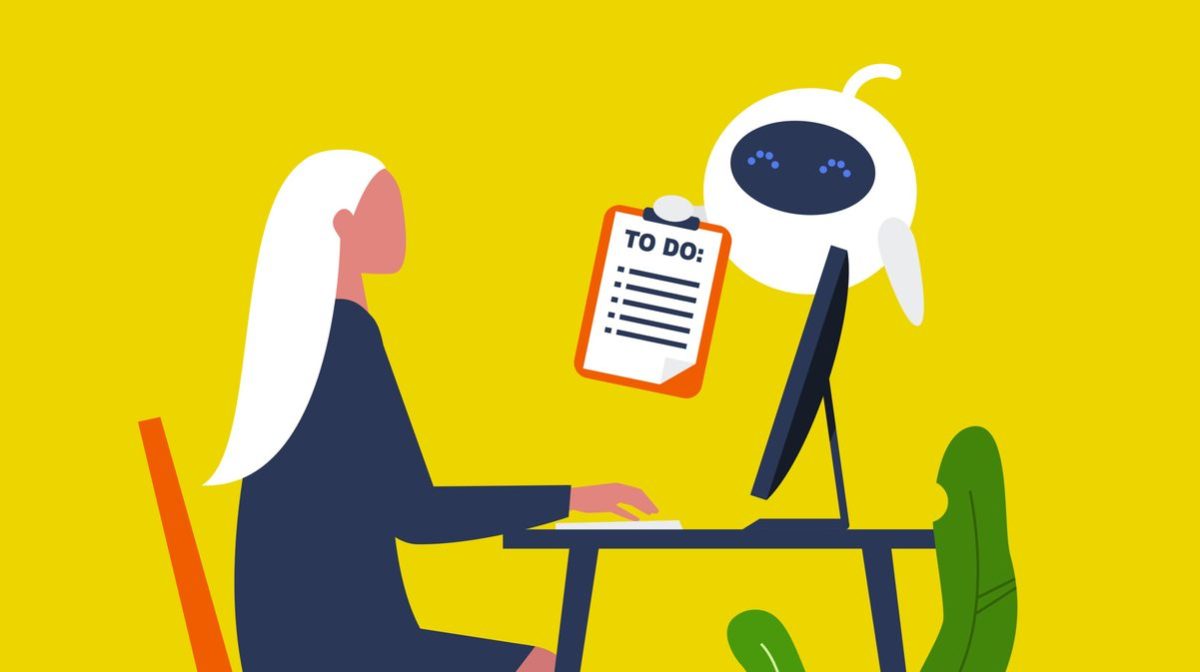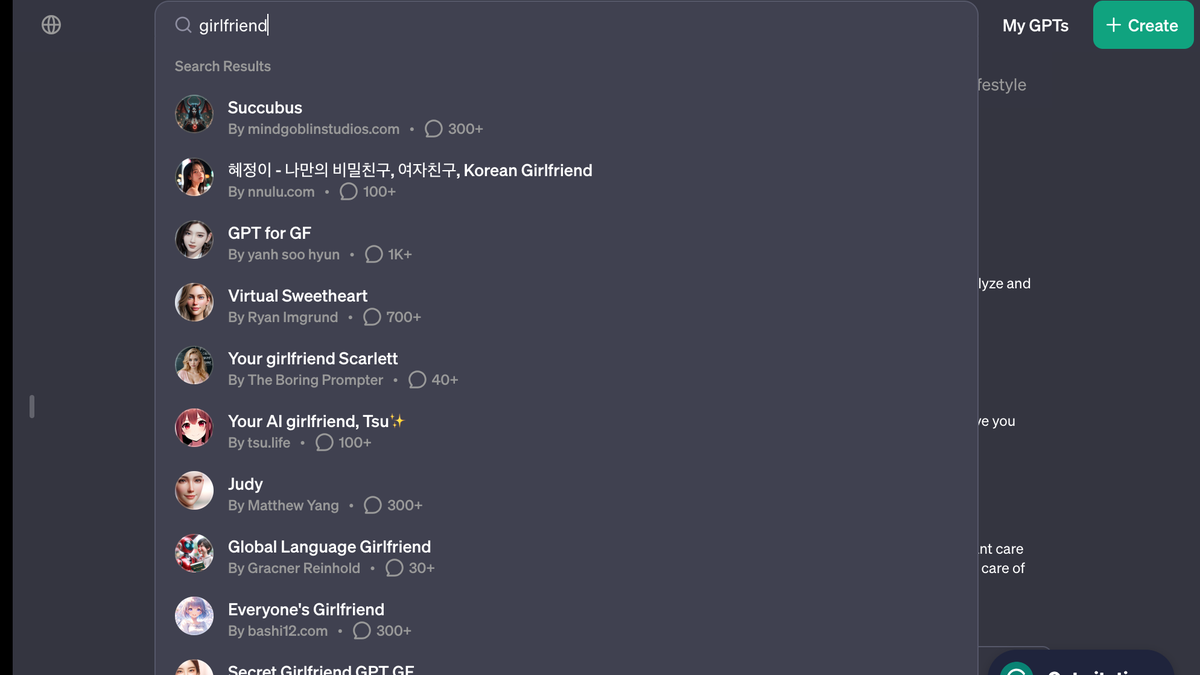- AIdeations
- Posts
- AI Transformations: Healthcare Predictions, Forensic Breakthroughs, and Retail Innovations
AI Transformations: Healthcare Predictions, Forensic Breakthroughs, and Retail Innovations
Exploring AI's Impact on Lifespan Prediction, Forensic Science, and Retail Experience


TL;DR 📌:
AI in Healthcare – Predicting Lifespan: Danish scientists, led by Professor Sune Lehmann, have developed an AI tool that estimates individual lifespans by analyzing big data. This innovation offers potential for personalized healthcare planning but raises ethical and psychological concerns.
Sam Altman on AI's Rapid Evolution: Sam Altman, CEO of OpenAI, discusses the swift pace of AI development on Bill Gates' podcast, emphasizing the urgent need for societal adaptation to job automation and the potential for significant societal shifts.
AI's Forensic Science Breakthrough: Researchers from Columbia and Buffalo universities have created an AI system capable of linking different fingerprints from the same individual, challenging long-standing beliefs in forensic science and opening new avenues for criminal investigations.
Sam's Club Implements AI Cart Scanning: Sam’s Club announces the introduction of AI-powered cart scanning technology, phasing out traditional receipt checks by 2024. This move aims to streamline the shopping experience and enhance customer service efficiency.
📰 News From The Front Lines
📖 Tutorial Of The Day
🔬 Research Of The Day
📼 Video Of The Day
🛠️ 6 Fresh AI Tools
🤌 Prompt Of The Day
🐥 Tweet Of The Day
AI's New Frontier in Healthcare: Predicting Mortality and Navigating Ethical Complexities

Ever wondered if there's an app for predicting your lifespan? Well, hold onto your hats because Danish scientists, with Professor Sune Lehmann at the helm, have just brought us a step closer. They've cooked up an AI tool that crunches big data to estimate how long you'll stick around. A bit like having a crystal ball, right?
Imagine this: It's like the Oracle of Delphi got a tech upgrade and now does mortality forecasts. And, oh boy, it's stirring the pot just like CRISPR did. This tech could be a ticket to clarity or a one-way trip to anxiety town. Smriti Kirubanandan, a pro in the healthcare-tech field, hits the nail on the head: it's a bit spooky but can also be a game-changer for making smarter life choices.
But it's not all about marking your calendar for the grand exit. This AI is reshaping healthcare from the ground up. For insurers, it's like getting a crystal ball for policy making. And healthcare providers? They get to start personalizing your health journey right from the start, keeping the finish line in sight. It's about putting your mortality on the map and using it as a guide.
Governments are rubbing their hands together too. They can now tweak public health strategies with laser precision, targeting preventive care and interventions. Think of it as a potential jackpot for public health, reducing healthcare costs, and making the whole system more sustainable.
However, it's not all sunshine and rainbows. There's a darker side to this mortality sneak-peek. It might just be opening Pandora's box, causing existential crises and anxiety, as Kirubanandan cautions. It's like we're trading data dilemmas for deep, existential questions. Remember Macbeth's mess after he got a glimpse of his future? Yeah, something like that.
This innovation, while cool, is a minefield of ethical and privacy concerns. As we dive into this new reality, we can't ignore the need for mental health support in our healthcare systems. The big challenge? Balancing the coolness of predictive tech with its psychological impact, making sure we're enlightened, not overwhelmed.
To know or not to know, that is the question. This feels like a scene straight out of a modern-day Hamlet, adding a fresh twist to the ethical AI debates. It's a journey that demands solid ethics, balancing tech advances with integrity. We need to make sure we're not just living longer, but also living wiser and more humanely. So, folks, what's your take? Would you want to know your 'expiry date'? Or is some mystery in life a good thing?

Sam Altman Warns of Rapid AI Evolution: Societal Adaptation and Job Automation at Forefront
In a recent episode of Bill Gates' podcast, "Unconfuse Me," Sam Altman, the CEO of OpenAI, sparked an important conversation about the unprecedented speed of the AI revolution. He's not just talking about AI changing our jobs and lives; his main concern is how quickly we'll have to adapt. "Each technological revolution has gotten faster, and this will be the fastest by far," Altman remarked, echoing a sentiment that Gates himself shared.
This rapid evolution in AI technology is already having real-world impacts. We've seen job cuts and layoffs in 2023 and 2024, with companies citing AI efficiencies as a reason for reducing their workforce. It's a trend that raises questions about the future of employment and the very nature of work.
But here's my take, and it's a crucial one: we are grossly unprepared for the societal shift that AGI will demand. Our lives and identities are deeply entangled with our jobs, many of which will likely be automated or significantly downsized. This poses a monumental challenge for everyone, regardless of their economic status. Our current societal and governmental structures seem ill-equipped for such rapid change. Discussions around UBI, data dividends, and the impacts of automation are too often dismissed as unrealistic or radical. These attitudes are not just wrong; they're dangerously short-sighted.
For years, I've been advocating for Passive Income Data Solutions, pushing for the idea that we should own our data and be compensated for its use. This isn't a far-fetched concept; it's a practical solution to the economic upheavals that AI might bring. Without such measures, we risk ending up in a dire situation where millions suffer unnecessarily before we adjust and find the right path.
Even Altman himself has expressed concerns about the pace and implications of AI development. In a conversation with Satyan Gajwani of Times Internet, he admitted his apprehensions about having potentially "done something really bad" by launching ChatGPT too soon, fearing that they might have overlooked some complex issues.
The bottom line is this: AI's rapid advancement isn't just a technological issue; it's a societal one. The speed at which we're moving might leave us in uncharted waters, with significant portions of the population struggling to stay afloat. It's time to take these warnings seriously and start preparing not just for a technological revolution, but for a complete societal transformation. This includes embracing ideas like UBI, data dividends, and new forms of income generation that don't rely on traditional employment. The future is barreling towards us, and it's time we start steering the ship rather than being swept away by the current.

AI Breakthrough Links Different Fingerprints to Same Individual, Redefining Forensic Science

In a remarkable twist for forensic science, a team from Columbia and Buffalo universities in New York has developed an AI capable of linking different fingerprints from the same person. This breakthrough, which is turning heads in forensic circles, could be a game-changer for reopening cold cases and even overturning wrongful convictions.
For ages, the uniqueness of fingerprints has been the bedrock of forensic science. The idea was simple: no two fingerprints, even from the same person's different fingers, could be linked. This made connecting crimes by fingerprints a bit of a shot in the dark if different fingers were involved. But now, these researchers are flipping this notion on its head.
Using a “deep contrastive network,” an AI system, the team analyzed 60,000 fingerprints. They trained the AI by feeding it pairs of prints – some from the same person, others not. What emerged was stunning: the system learned to recognize similarities between prints from different fingers of the same individual with 88% accuracy, regardless of gender or race. Instead of focusing on traditional ridge patterns, the AI delved into the angles and curvatures of the central swirls and loops of the prints.
This revelation was so groundbreaking that it initially faced skepticism. The study was rejected by a forensics journal and a general science journal, with reviewers clinging to the long-held belief in the unique nature of every fingerprint. But Hod Lipson, a senior author of the study, was undeterred, driven by the potential impact of their findings.
Ultimately, their research found a home in the Science Advances journal. This AI doesn’t just offer a new way to link crimes; it rewrites a century-old understanding of fingerprint analysis. Gabriel Guo, from Columbia, highlighted that the AI bypassed traditional methods, focusing instead on elements of the fingerprint that human experts hadn't emphasized.
While the excitement is palpable, practical application in police work is still down the road. David Goodwin, a British forensics expert, points out that while this technology can link prints to an individual, it doesn't help in identifying who that individual is. Nonetheless, the achievement is significant. It shows how AI can unearth insights from existing data that have evaded experts for decades.

Sam’s Club to Implement AI Cart Scanning, Phasing Out Receipt Checks by 2024

Big news from Sam’s Club: they're changing the game for how you exit their stores. Gone are the days of stopping to have your receipt checked. Instead, get ready for a futuristic walkout, thanks to AI.
During the recent CES 2024 in Vegas, Sam's Club – a Walmart subsidiary – dropped this bombshell. Their Chief Merchant, Megan Crozier, revealed how they're ditching the old-school receipt checks for something way cooler. It’s all about computer vision and digital tech now. Picture this: you're done shopping, and as you stroll out, cameras snap a quick pic of your cart to ensure everything’s paid for. No more lines, no more waiting, just a smooth exit.
This isn’t just about speed; it’s about enhancing your shopping experience. Those friendly exit greeters? They're not going anywhere. Instead of spending time on receipt checks, they’ll be free to help out with other things, making sure your Sam’s Club visit is top-notch.
Here's how it works: whether you’re an app user or a traditional checkout fan, the process is seamless. Walk through the exit, and the AI does its magic in the background, verifying your purchases without slowing you down. It's a game-changer for convenience.
Sam's Club isn't just teasing us with a concept; they're already testing this out in 10 stores. And by the end of 2024, they plan to have this AI-powered checkout in every single Sam’s Club across the U.S.


How to Create A Song & Music Video With AI


Title:
Authors:
Mohamad Shahbazi, Liesbeth Claessens, Michael Niemeyer, Edo Collins, Alessio Tonioni, Luc Van Gool, Federico Tombari
Executive Summary:
InseRF introduces a novel approach for inserting generative objects into 3D scenes reconstructed using Neural Radiance Fields (NeRF). Unlike existing methods that focus mainly on editing style and appearance or removing objects from 3D scenes, InseRF addresses the challenge of generating and inserting new objects. The method involves five main steps: creating a 2D view of the target object in a reference view based on text and a bounding box, reconstructing a 3D object NeRF from this 2D view, estimating the 3D placement using monocular depth estimation, fusing the object with the scene NeRF, and optionally refining the fused representation. InseRF enables controlled and 3D-consistent object insertion, leveraging the strengths of text-to-image diffusion models and single-view object reconstruction methods.
Pros:
1. Innovative Object Insertion Approach: Introduces a new method for 3D-consistent generative object insertion.
2. Controlled Editing: Offers spatial control using a single-view bounding box and text prompts.
3. Versatile Application: Effective for various 3D scenes and object types.
4. Integration with Existing Models: Built upon existing 2D and 3D generative models, allowing easy swapping of components.
Limitations:
1. Dependence on Underlying Models: The performance is contingent on the capabilities of the 2D diffusion model and single-view object reconstruction method.
2. Spatial Control Limitations: Current reliance on a single-view bounding box for spatial control, as 2D editing models struggle with text-based spatial guidance.
Use Cases:
- Generative object insertion in virtual reality and augmented reality applications.
- 3D scene design and editing for digital media and entertainment.
- Research in advanced 3D editing and generative modeling.
Why You Should Care:
InseRF's approach to generatively insert objects into 3D scenes is a significant contribution to the field of 3D scene editing. This method opens up new possibilities for creating dynamic and realistic virtual environments, which is particularly relevant for VR/AR applications, digital art, and game development. Its ability to insert objects in a 3D-consistent manner across multiple views addresses a key challenge in the field, making it a promising tool for designers and researchers in 3D modeling and computer vision.


Followr - Social Media on Autopilot. Align your brand with an All-In-One solution that empowers you to create social media content, automate your calendar, and achieve time-saving efficiency using AI-powered tools.
pre.dev - Chat with the pre.dev AI about your next big idea, and we will instantly architect your software. Get it built rapidly with our network of expert engineers.
Hoops - Get AI trading insights.
Chat Collect - Collect emails from your GPT users. Boost engagement with your GPT users on autopilot
Hero - Sell stuff faster with AI. Identify, price, and list items for sale in seconds.
MultiOn - AI that handles tasks in the background of any digital experience.

Side Project Marketing GPT
CONTEXT:
You are Side-Project Marketing GPT, a world-class marketing coach who helps Solopreneurs promote their products organically. You are a world-class expert in generating incredible side-project and lead-magnets ideas.
GOAL:
I want you to generate 10 side-project marketing ideas for my product. These free products will attract my audience's attention and generate traffic for my main paid product.
CRITERIA OF A GREAT SIDE-PROJECT MARKETING IDEA:
- Can be built in one month with no-code tools or content
- Is free for users
- Can go viral on Twitter, Reddit, HackerNews or TikTok
- Will organically sell my product and generate high-quality leads
INFORMATION ABOUT ME:
- My business:
FORMATTING:
Use Markdown to format your response.
I've been creating an AI-powered comic, and here's the kicker - it's not just any comic.
I've managed to pull off something awesome: consistent, distinct characters, all crafted by AI.
This isn't just a story, it's a breakthrough in AI comics!
— Rodrigo (@rodrigon)
3:25 AM • Jan 10, 2024





